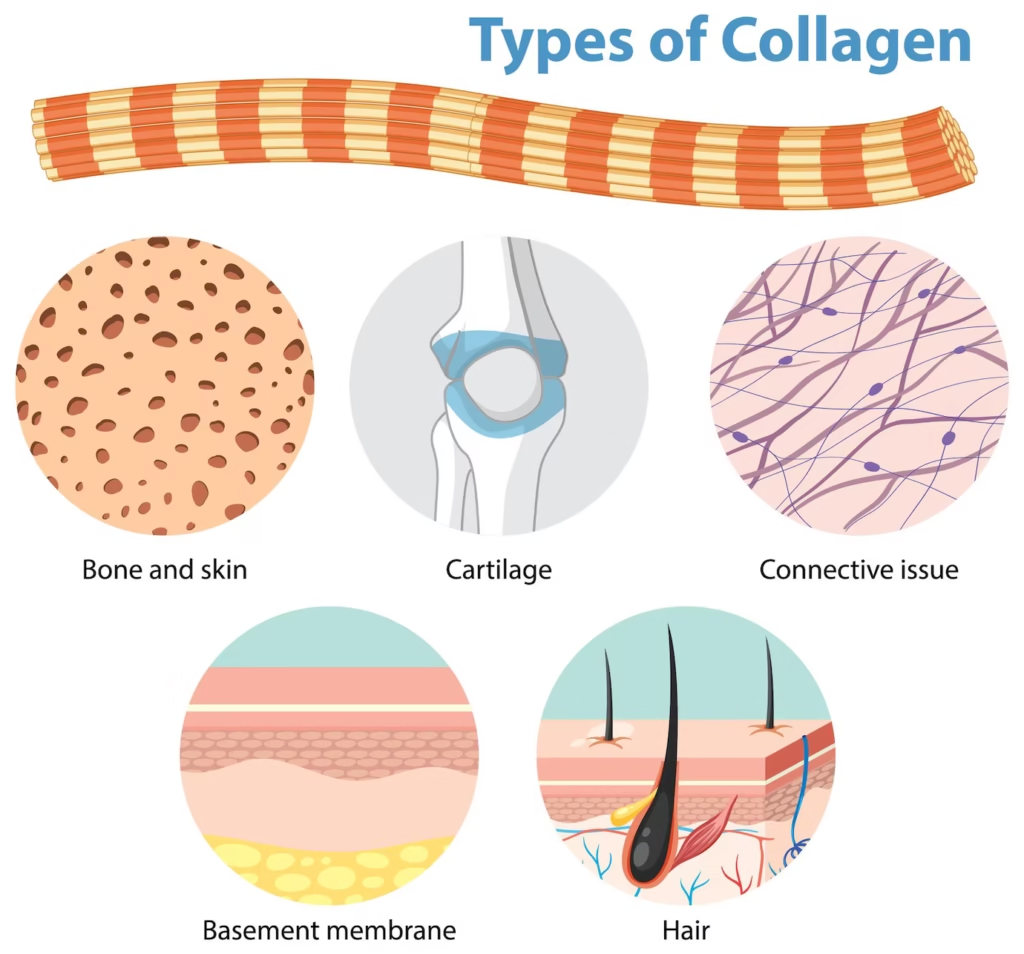
Collagen is often referred to as the building block of our bodies, and for good reason. It’s the most abundant protein in humans, accounting for about 30% of the body’s protein content. Found in skin, bones, tendons, and connective tissues, collagen provides structure, strength, and elasticity. It’s also a popular supplement, celebrated for its benefits to skin, joints, and overall health. Let’s dive into what collagen does, its potential upsides and downsides, and some fascinating facts.
The Benefits of Collagen
- Skin Health and Anti-Aging: Collagen supplements are widely recognized for their ability to improve skin elasticity and hydration. By boosting collagen levels, many users report a reduction in wrinkles and firmer, more youthful-looking skin.


- Joint Support: For individuals with joint pain or arthritis, collagen can help maintain cartilage and reduce discomfort during movement.
- Bone Strength: Collagen plays a role in maintaining bone density, making it a valuable addition for those concerned about osteoporosis.
- Gut Health: Some studies suggest collagen may support gut integrity, potentially aiding those with digestive disorders.
- Hair and Nails: Regular collagen supplementation is often linked to stronger, shinier hair and less brittle nails.

Potential Downsides of Collagen
While generally considered safe, collagen supplements aren’t without drawbacks:
- Digestive Issues: Some users report mild bloating or an upset stomach after taking collagen.
- Allergic Reactions: Collagen sourced from marine or bovine origins might trigger allergies in sensitive individuals.
- Unregulated Market: Not all collagen supplements are created equal. Quality can vary significantly, and some products may contain unwanted additives or contaminants.
What Science Says
Research supports many of collagen’s benefits, especially for skin and joint health. Studies show that consistent use of collagen peptides can lead to noticeable improvements in skin elasticity and reduced joint pain. However, more extensive clinical trials are needed to validate other claims, such as collagen’s effects on gut health or athletic performance.
Unusual Facts About Collagen
- Ancient Beauty Secret: Collagen has been used for centuries in East Asia, with bone broth being a staple in traditional diets.
- Not Vegan-Friendly: Collagen is naturally derived from animal sources like bovine, fish, or chicken. However, “vegan collagen boosters” are emerging, which aim to stimulate the body’s collagen production without using animal products.
- Body Decline: Our natural collagen production begins to decline as early as our 20s, which is why supplementation becomes appealing as we age.
How to Use Collagen
Collagen supplements come in various forms, including powders, capsules, and liquids. They are typically hydrolyzed for easier absorption. Adding collagen powder to coffee, smoothies, or soups is a popular and convenient option. The recommended dose varies but usually falls between 2.5 to 10 grams per day, depending on the intended benefits.
Should You Try Collagen?
Collagen is a versatile supplement that offers benefits for a variety of needs, from improving skin and joint health to potentially supporting gut function. While it may not be a miracle cure, its broad applications and generally safe profile make it worth considering for those looking to support their body’s natural processes.
As always, it’s wise to consult with a healthcare professional before starting any new supplement, especially if you have existing health conditions or allergies.

